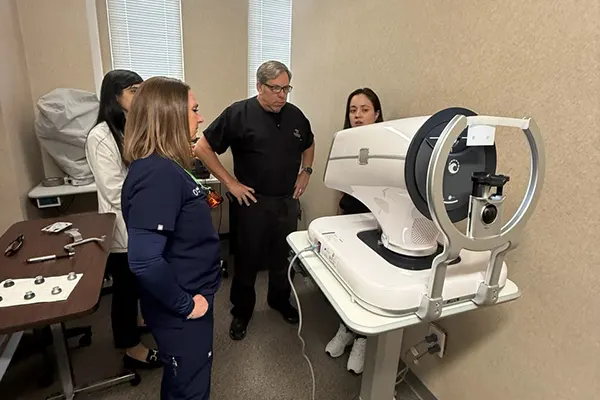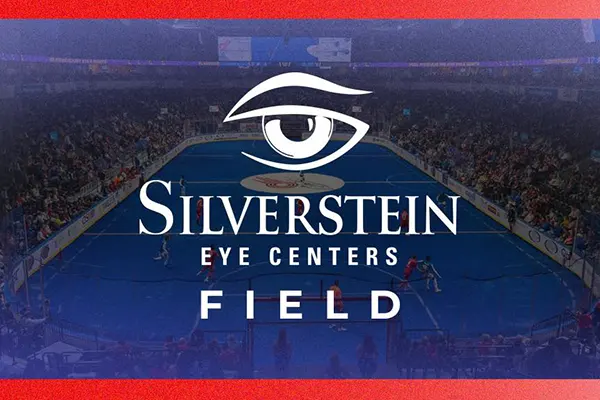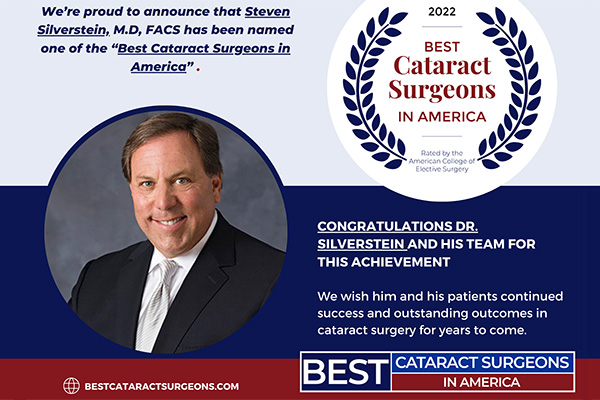Lens Implant Options
What is a Lens Implant?
A lens implant replaces your natural lens. It is made of acrylic or silicone and will last for the rest of your life. Many different types of lens implants are used today, and your surgeon will recommend the best lens implant for your eyes. There are two categories of lens implants: standard and premium.
Standard lens implants correct for only one range of vision, either distance or near, but not both. If you choose to see well in the distance, reading glasses are necessary to see up close. Standard lens implants provide excellent quality of vision and are a good choice for patients who will not mind wearing glasses after surgery for certain activities.
Premium lens implants provide a continuous range of vision from near to far. In contrast to standard lens implants which require glasses for distance or near, premium lens implants expand your range of functional vision for distance and near with seldom use of glasses.
One of the most exciting and important developments in refractive cataract surgery is the use of premium bifocal (multifocal and pseudo-accommodating) lens implants. No other technology can provide distance and near vision in the same eye, and after removing the natural lens, implantation of the bifocal lens in both eyes provides remarkable, binocular (using both eyes) vision for both distance and near activities. This technology has been FDA-approved since the mid-1990s, enjoyed by millions of happy, satisfied patients. Corrective eyewear may still be necessary for some activities, but the freedom from glasses and contact lenses is incredible.
How Does the Healing Process Differ if a Premium Lens is Used?
While virtually everyone implanted with a premium lens will experience significant improvement in their uncorrected vision after surgery, some people might not see 20/20 at all distances. In some situations such as reading fine print in dim lighting, glasses will help. Patients who choose the premium lens implant may notice some glare and halos, but this will diminish over time as the eye and brain work together to adapt to your new lens. Preoperative measurements to choose your lens implant are accurate to a hundredth of a millimeter, but the final visual outcomes may be affected by your healing process. Any significant residual refractive error such as nearsightedness, farsightedness, or astigmatism may be improved with another procedure such as LASIK.
Is There Any Additional Cost?
The cost of cataract surgery, anesthesia, and the standard lens implant is covered by your insurance. The premium lens implants are not covered by Medicare, Medicaid, and other health insurance. An out-of-pocket expense for the premium lens implants will cover the cost of the lens itself. Sometimes there will be an added cost when an additional procedure is required to optimize your vision. Silverstein Eye Centers offers low payment plans with 0% interest are available.
- Click here for more information about available financing.
- Click here for more information about using FLEX spending accounts.
Ask the doctors at Silverstein Eye Centers if you are able to take advantage of this exciting once-in-a-lifetime opportunity to achieve a more youthful and versatile view of the world.
Which Premium Lens Should I Choose?
Depending on your individual eye health and lifestyle preferences, the doctors at Silverstein Eye Centers will determine which lens would suit you best. Below are the premium lens implants Silverstein Eye Centers is proud to offer:
Alcon PanOptix®
The PanOptix lens offers remarkable vision whether you’re looking at something up close, far away, or in between. The new technology of the new lens enables you to see objects better at an arm’s length when viewing your smartphone or working on the computer.
Click here to read more about the PanOptix® Lens Implant.
enVista Toric®
The enVista Toric® lens makes it possible to significantly improve your distance vision while also reducing or eliminating your astigmatism to provide outstanding distance correction independent of glasses and contact lenses. Reading glasses will still be necessary.
Click here to read more about the enVista Toric® Lens.


